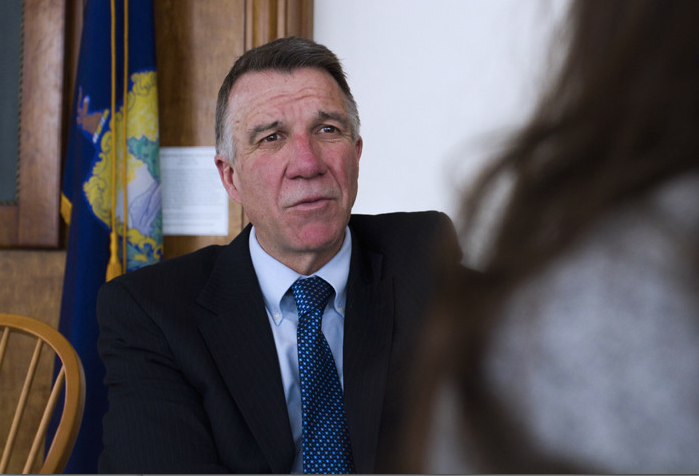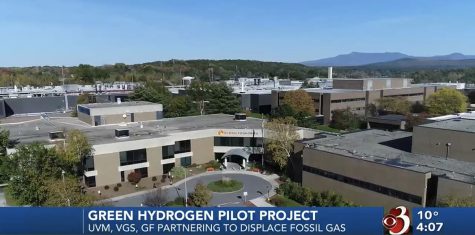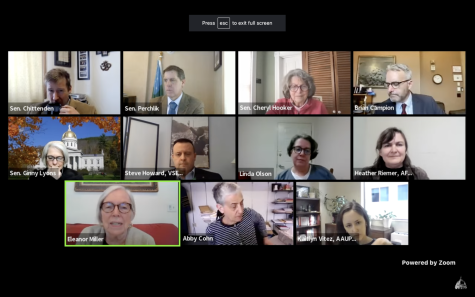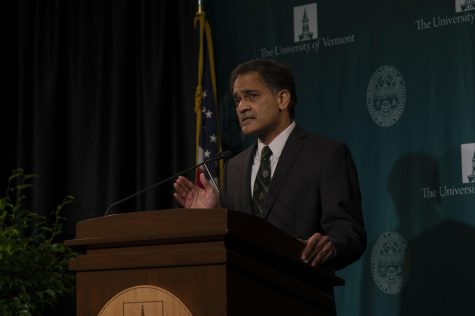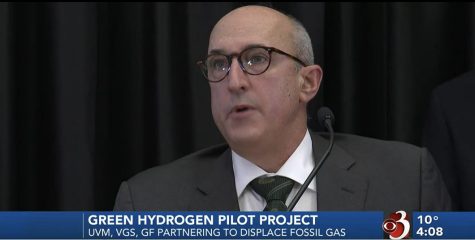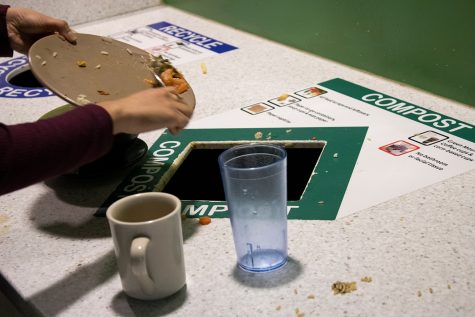The Governor and UVM
Phil Scott hopes his alma mater will help shape the future of the state
Gov. Phil Scott discusses his past at UVM and his path to the Vermont Statehouse in 2017.
Gov. Phil Scott sat back in a wood chair in his large, fifth floor Montpelier office. He spoke quietly and slowly, pausing between thoughts, and leaned forward each time he told a story.
He looked up as he described growing up in Barre, Vermont; he worked on construction jobs across the state, and when he was 18, he came to UVM, he said.
In Burlington, Scott shared a house with a dozen other students on the corner of Maple and South Union Street, he said.
“I’m not going to tell any stories about what happened there,” Scott said with a laugh. He leaned back in his chair. “I can’t remember a thing,” he said with a smile.
The Republican governor does, however, remember the jobs he held as a student.
It was time spent building things with his hands that he enjoyed most, he said, along with working on construction jobs, at a motorcycle store in Montpelier and in a shop on campus.
Now, as governor of Vermont, Scott hopes that Vermonters can be given a good education. He hopes out-of-staters who choose to receive an education in Vermont decide to stay in the state and contribute to its economy and workforce, he said.
This will help strengthen the state overall, he said, by increasing the youth population in Vermont.
The life of a UVM alumnus
While at UVM, Scott’s favorite UVM professor was Chuck Ferreira, who still teaches at the University, he said. Ferreira taught Scott’s shop classes and remembered him clearly.
“When other students complained, he just did it,” Ferreira said. “I remember him in a metal-working class. As a student, he already had the metal-working skills people dreamed of.”
Though Scott has traded woodshop floors for the statehouse, he doesn’t shy away from work, said SGA President Jason Maulucci, who worked on Scott’s campaign last spring and now works as one of Scott’s full-time staff members.
“We’d be out on the campaign trail and the van would break down. He would get down under it and fix it,” Maulucci said. “When the grill wasn’t firing up, he’d get down and get his hands dirty.”
While lieutenant governor, Scott set aside a few days each month to work amongst the people he represented.
Those days spent working with beekeepers, school teachers and violin specialists kept him connected with Vermonters, Maulucci said.
“He cares about seeing what everyday people go through,” Maulucci said. “There’s someone in the governor’s office who understands and shares Vermonters’ backgrounds.”
Scott graduated from UVM in 1980 with a degree in technical education. It was those experiences that fostered his belief in the power of technical training and college education to improve the state’s economy, he said.
Scott hopes the government can address the state’s aging population and shrinking workforces by giving more money to public colleges and making Vermont more attractive for recent graduates.
Rethinking Vermont’s educational and economic models
Scott outlined a plan with drastic changes in education spending in a budget address to the state legislature Jan. 24.
The Vermont State College system, on the verge of bankruptcy last year, would get a $4 million increase in state funding, Scott stated.
Without the funding bump, schools like Vermont Tech would have had to close their doors, said Phil Baruth, UVM English professor and chair of the senate education committee.
Increased funding for colleges comes out of the state’s K-12 budget, and would require local school boards to freeze their budgets, Baruth said.
“In an unguarded moment with colleagues, I’ve said those ideas are crazy,” he said.
Since 1997, the population of Vermont public schools has dropped by over 20,000, according to data from the Vermont Agency of Education.
Scott said the budget change just makes sense.
“We lose three K-12 students out of the school system every day,” Scott said. “We’ve got to ‘right size’ our education system.”
He encouraged Vermonters to get technical training, referencing his mother, who learned how to change her oil at the age of 65.
There’s a growing need for people who know how to work with their hands, he said.
But Baruth is worried Scott’s education budget prioritizes technical skills and STEM fields over the liberal arts.
“I worry that Montpelier talks more about funding things that plug immediately into the tech economy,” Baruth said. “We want to be well-funded across our education system.”
Using UVM to turn out-of-state students into Vermonters
UVM will not benefit from the $4 million funding bump to state colleges, but the University is still an essential asset to Vermont’s economy, Scott said.
While Scott would like to further increase UVM’s state funding, Vermont can’t afford it, he said. Part of his campaign promise to make the state more affordable was a pledge to veto any bill that raises taxes or fees.
The University requested $44 million in state funding for 2017, according to a Jan. 2016 presentation given to the Vermont legislature.
“I’ve advocated for colleges and universities to instead try and look from within, to try and build your alums,” Scott said. “If your alums are successful, in terms of future donations, you’ll probably benefit.”
The University’s power to attract students from out-of-state could help Vermont’s rapidly aging, shrinking workforce if someone can get graduates to stay, Scott said.
“We’re looking to grow the population, especially the youth,” Scott said. “If we have a number of students who have the same attraction to the state, and we can find opportunity for them and provide an affordable Vermont, then we start gaining population.”
Scott hopes his plan to build more affordable housing and increase the number of people who qualify for it will convince graduates to stay, he said.
Scott had a direct request for soon-to-be UVM graduates.
“We want to hear your thoughts,” Scott said. “We can sit in the state house all day long and debate about why our youth are leaving, and what we can do to keep them here, but we only have to ask. Tell us what you need, what you want.”
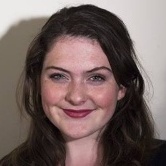
Kelsey Neubauer is a junior at the University of Vermont, majoring in English. Kelsey joined in January 2015. In October 2016, she was made the Editor-in-chief....


